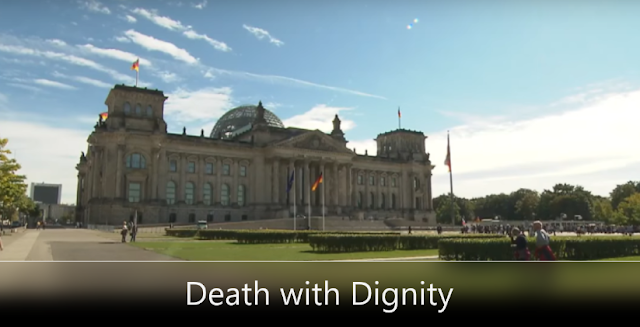"19" – Why Living Consciously Strengthens Our Mental Health
On my blog, I often write about the small and big things that affect our emotional balance.
About moments that throw us off course - and those that lift us up, shape us, and stay with us. Today, I want to share a deeply personal experience with you.
A story that begins with a song from 1985 - and still resonates with me to this day. It shows how profoundly certain moments can impact us when we allow ourselves to feel them fully. And why mental well-being doesn’t just start with therapy or tools, but with a conscious attitude toward life itself. (This time, I have to ask my German readers for forgiveness, as I need to write this article in English - sorry about that.)
Not long ago, I wrote about The Breakfast Club - a film that had a big impact on me 40 years ago. A story about growing up, being different, being human. Today, I want to talk about a song from that same year: “19” by Paul Hardcastle.
The Impact of Paul Hardcastle’s “19” on Me
The song was released in 1985 - the very year I turned 19 and was deployed for three months in the Persian Gulf as part of an AMF mission alongside U.S. units. It wasn’t a drill, it wasn’t an exercise - it was a real deployment, with all that entails. Including death.
Thanks to special training from the U.S. Army in end-of-life support in Heidelberg, I was at least somewhat prepared for what was to come. But nothing can truly prepare you for what I experienced: accompanying a fellow 19-year-old U.S. soldier through his final days. He had joined the Army in hopes of a better education. We were born in the same month. And just days later, he passed away - under a dusty brown tent tarp, thousands of miles from his home, his mother, his family. I’m still in contact with his mother (and I know where to get the best Chocolate Cake ever) I’m still grateful for that connection - though it’s painful.
That experience shaped me on the deepest level.
It taught me that living consciously isn’t just a phrase - it’s a choice. One that doesn’t shield us from pain, but helps us endure it without falling apart inside.
Something to reflect on:
What does living consciously mean to you - and how does it affect your mental health?
Mental health begins in our everyday lives. In how we talk to ourselves. In how we breathe. In how we remember - and how we feel. It’s not just the major life events that shape us. Often, it’s the quiet, seemingly small moments: a song, a glance, a moment of honesty. The ability to recognize not just someone else’s story, but our own reflection within it.
To live consciously means taking the present seriously. Acknowledging the past. And approaching the future with dignity - even if we can’t control it.
To many, “19” was an anti-war anthem. To me, it became something much more personal. A symbol of loss. Of compassion. Of the deep human need to draw strength and empathy from even the hardest experiences.
In a world that often feels too fast, too loud, too shallow, living consciously is an act of self-care. It doesn’t make us untouchable - but it helps us stay connected. To ourselves. To others. And to what truly matters.
Have you ever had a moment, a song, or a person that changed your life in a meaningful way?
I’d love to hear your thoughts in the comments - or feel free to share this post with someone who might need it.
Sometimes, it only takes a single sentence to start a ripple.
Below are the opening lines of the song's lyrics:
In 1965, Vietnam seemed like
Just another foreign war
But it wasn't, it was
Different in many ways
As so were those
Who did the fighting
In World War II
The average age of the
Combat soldier was twenty-six
In Vietnam, he was nineteen [Chorus]
...
...
I and my comrades often listened to the song and we watched the video on MTV or other channels:
A Final Note on Healing and Growth
Healing doesn’t mean forgetting. It means integrating experiences and pain into who we are - and choosing to live forward, with purpose.






Comments
Post a Comment